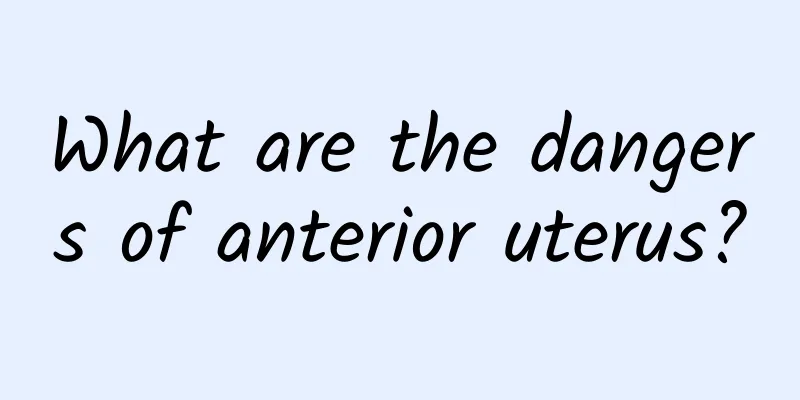Female menopausal syndrome

|
Menopause is a stage that every woman must go through in her life. Women in menopause should not stay at home all the time. They should go out more often. It is easier to be narrow-minded and get stuck in a rut if you stay at home alone. In addition, you should also pay attention to adjusting your living habits, make an appointment with three or five friends to go out for exercise every day, actively participate in community activities, and enrich your life. So, what are the main symptoms of female menopause syndrome? When women show symptoms of menopause, they panic. Not only do they feel depressed, but they also make their family members nervous. Many people believe that women need to take medicine when they have menopausal syndrome. In fact, as long as you understand the symptoms of menopausal syndrome, you can completely regulate it yourself if it is not very serious. The manifestations of female menopausal syndrome include the following aspects. (1) Menstrual disorders: Menstrual disorders are the first clinical manifestation of menopause. 70% to 80% of the causes are functional and related to the decline of gonadal function. There are roughly three situations or types of manifestations. ① Irregular menstrual cycle: The most common form is early onset of the cycle, shortened menstrual duration, gradual decrease in menstrual volume, and then complete cessation. This type of bleeding is estrogen withdrawal bleeding, not true menstruation. ③ Long-term anovulatory bleeding: The clinical manifestation is uterine bleeding after a period of amenorrhea, which lasts for 2 to 4 weeks or longer. The amount of blood and duration are related to the duration of estrogen action and the speed of withdrawal. ③Sudden cessation of menstruation: It is quite rare, accounting for only 10%, because ovarian function decline is a slow process. (2) Blood pressure changes: generally manifested as increased systolic pressure, not high diastolic pressure, and very obvious fluctuations, most of which occur simultaneously with hot flashes and excessive sweating. When blood pressure rises, symptoms such as dizziness, headache, swollen eyes, chest tightness, and palpitations may occur. Unlike primary hypertension, these symptoms are paroxysmal. (3) Hot flushes and sweating: commonly known as "heat rising", are caused by the dysfunction of the autonomic nervous system leading to vasomotor dysfunction. It often occurs when you are worried, angry, nervous, excited or agitated. The attack is usually sudden, and the patient feels a heat rushing up from the chest to the neck and face, followed by local redness and sweating. A few also show fear of cold and pale complexion. Each attack usually lasts from a few seconds to a few minutes. Some attacks occur once every few days, while others occur several times a day. In severe cases, it can affect the patient's work, study, sleep, and physical and mental health. According to statistics, about 20% of cases occur in the premenopausal period, and about 80% occur in the postmenopausal period. (4) Palpitations and shortness of breath: manifested as discomfort in the chest area, palpitations and shortness of breath, laryngeal palpitations, sighing-like breathing, and sometimes arrhythmia, tachycardia, or bradycardia. These symptoms are often related to emotions. It has nothing to do with physical activity. Sometimes it occurs simultaneously with hot flashes and sweating, but unlike coronary heart disease and angina pectoris, it cannot be relieved by nitrite drugs, and there is no change of myocardial ischemia on the electrocardiogram. (5) Neuropsychiatric symptoms: There are two manifestations. One manifestation is mental depression, insomnia, low mood, indifferent expression, inattention, frequent forgetfulness, or unreasonable panic, timidity, suspicion, whining, etc.; the other manifestation is mental excitement, emotional instability, irritability, sensitivity and suspicion, mood swings, often quarreling and fighting over trivial matters, crying and laughing at random, and even mental disorder, damaging people and property. (6) Psychological changes: People often feel lonely, empty, or isolated, or have a sense of hypochondria or impending death. Many people give up on themselves, blame themselves, and feel guilty. Some people are suspicious of everything and are always worried. These psychological disorders are sometimes quite prominent and need to be differentiated from neuropsychiatric diseases. The above introduces the symptoms of female menopausal syndrome. In addition to understanding the symptoms introduced above, female friends should also maintain a cheerful mood at all times and participate in more outdoor sports activities. Only in this way can they distract their attention and not get stuck on one thing. |
>>: What medicine is good for people with anemia?
Recommend
Should I use hot or cold compress for blood stasis?
In life, there are many times when we encounter a...
The benefits of washing your face with toothpaste and sugar
Many people who love beauty will develop some whi...
Avascular necrosis of talus
Some people may suffer accidental injuries, espec...
Many people don't know that "blockage of the triple burner" can lead to illness.
The triple energizer regulates the qi of the whol...
Neck twisting technique
The neck is an important part that connects the t...
How to deal with a bee bite
Bees normally do not actively attack humans. If y...
Itchy palate and ears
When the roof of the mouth is itchy, people may f...
Postpartum wrist tenosynovitis
The main cause of postpartum wrist tenosynovitis ...
What is the best medicine for treating liver cysts?
Liver cyst is a relatively common type of cyst. W...
There is a fleshy lump on the frenulum
Pimples can be found everywhere on the human body...
Best time to treat cerebral infarction
For middle-aged and elderly people, they must pay...
What causes thigh pain during late pregnancy?
Thigh pain in the late pregnancy is mainly caused...
What is pain around the collarbone?
Pain around the clavicle is not particularly comm...
Sore throat from eating crabs
Among seafood products, crab is a relatively popu...
Causes of hair loss in women over 30
Women in their 30s are also prone to hair loss, a...









